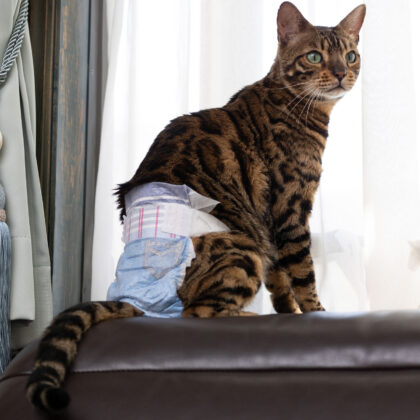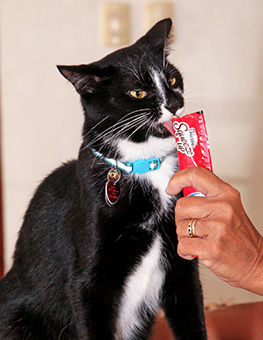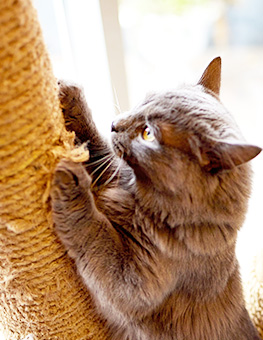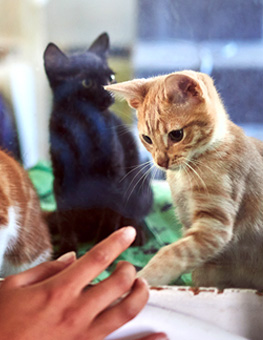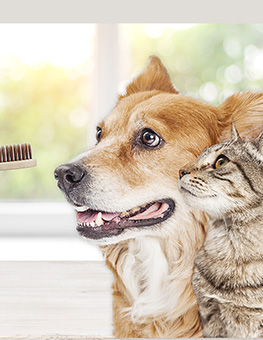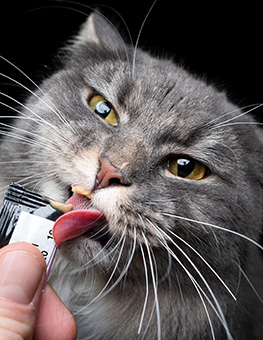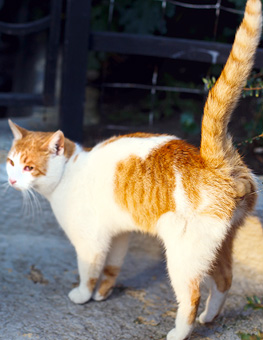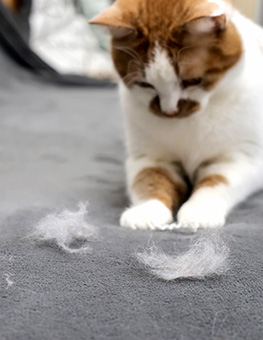Mosquito Bites and Your Cat
In addition to causing potentially irritating bites, mosquitoes can spread diseases to your cat.
Along with the warm and humid days of summer comes the mosquito. Although cats seem to be guarded against mosquitoes by their fur, they are vulnerable to bites on their ears and noses. As with humans, a bite from a mosquito can result in everything from an annoying itch to more serious parasitic diseases. In felines, mosquito bite hypersensitivity and heartworm disease are the primary concerns.
Mosquito bite hypersensitivity. This condition is the result of a reaction of the cat's immune system to a mosquito bite. In cats, this exhibits as lesions, scaling or raw ulcers in the area of the bite. Hair loss and pigment changes in the affected area are also typical. Often, the pads of the feet will be thickened, swollen, tender, and red. Swollen lymph nodes and fever may also occur. Severe mosquito bite hypersensitivity is treated with oral or injected corticosteroids. Milder cases often resolve themselves on their own –if the cat is protected from additional bites.
Feline heartworm disease. Heartworm disease is a serious parasitic condition caused by a worm, Dirofilaria immitis, which lives in the blood vessels and heart of infected pets. The disease is spread from dog to cat by mosquitoes. When an infected dog is bitten by a mosquito, the blood that is withdrawn can contain heartworm offspring. When the mosquito bites a cat, the offspring are passed through. Inside the cat, the heartworm can grow into a parasite up to a foot in length. Cats usually do not have a heavy worm burdon (3-5 worms) but even this small number can kill a cat.
- Lethargy
- Coughing
- Vomiting
- Breathing difficulty
- Fainting
- Sudden death
These symptoms are also associated with other feline diseases so diagnosis is difficult. A blood test is required to confirm the diagnosis but can be difficult to diagnose in the cat.
Mosquito control. Both of the conditions above can be addressed in part by keeping your cat indoors and controlling the mosquito population in your local environment. The following preventative measures will help to minimize bites for both you and your pets:
- Remove sources of stagnant water around the house and garden. Mosquitoes breed and thrive in standing water.
- Change water bowls frequently.
- Fit windows and doors of your home with screens to prevent mosquitoes entering.
- Use insect repellants with caution. Products with DEET are not recommended for cats and many repellants with essential oils have not been tested for effectiveness or safety.
Bite treatment. Treat bites on the ears and nose with an antibacterial cream to keep them from becoming infected. See your veterinarian if the bites do not heal or appear to be getting worse.
Heartworm treatment. You should speak to your veterinarian about the need for preventative therapy for heartworm. Never use canine heartworm medicine for your cat. Drug dosage levels vary from species to species. Treatment should always be under the direction of your veterinarian.
Both you and your cat will benefit from controlling the mosquito population around your home. For your cat, additional prevention in the form of heartworm treatments is recommended.



